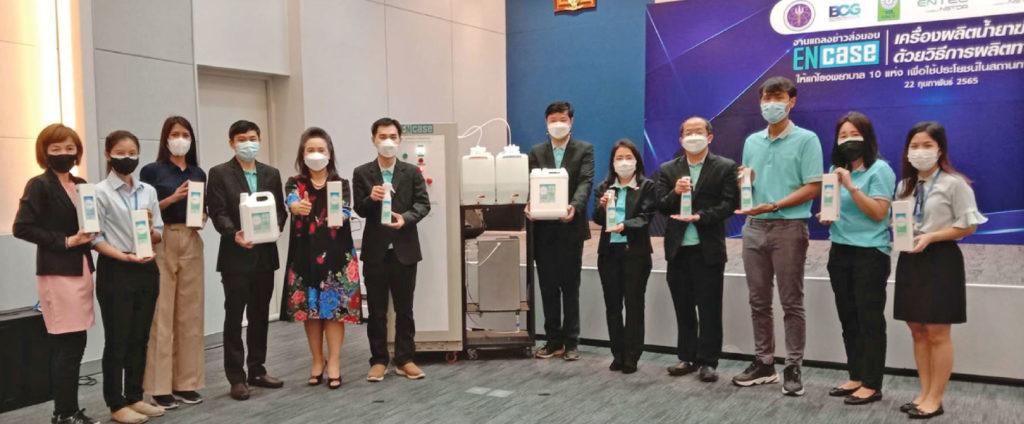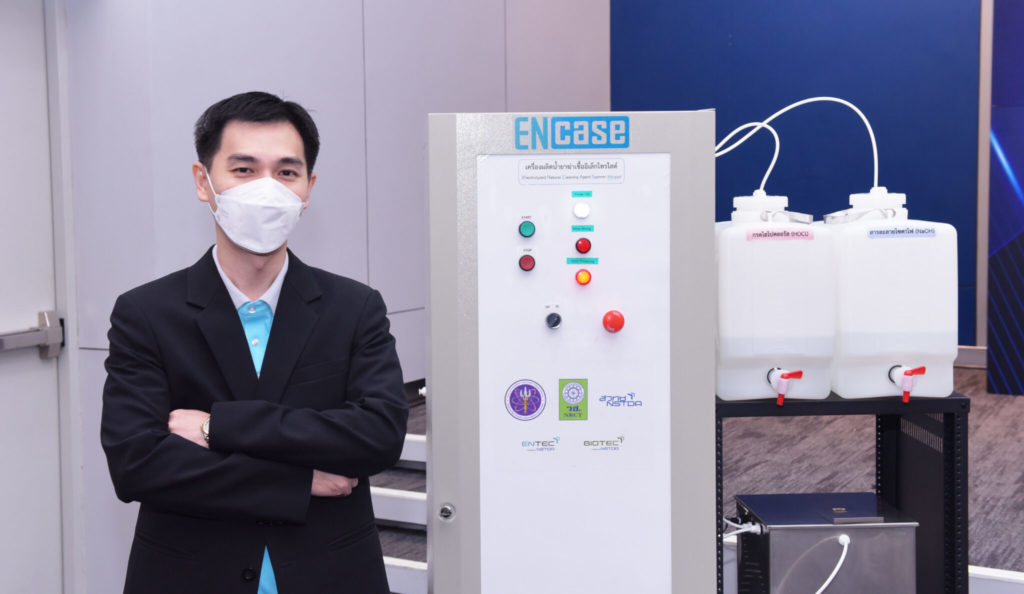On February 22, 2022 at the Ministry of Higher Education, Science, Research and Innovation, Dr. Sumittra Charojrochkul, Director of Energy Innovation Research Group of the National Energy Technology Center (ENTEC), together with Dr. Wiparat De-ong, Director of the National Research Council of Thailand (NRCT), had handed over ENcase, an innovative electrolyte disinfectant generator to 10 hospitals in 4 provinces. Encase employs the principle of electrochemical reactions to produce ENERclean, an electrolye disinfectant. These hospitals could be able to produce ENERclean for in-house usage in order to kill pathogens in the process of treating or disposing of the infectious waste in the hospitals, especially during the COVID-19 crisis.
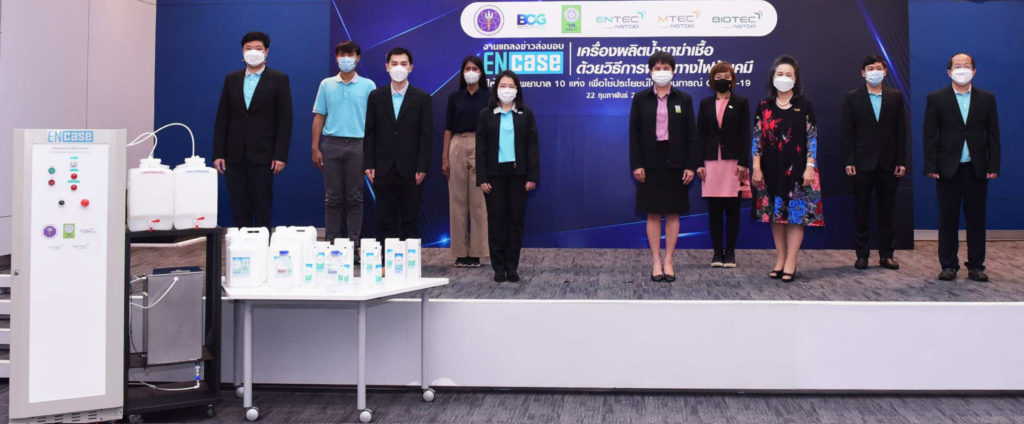
Dr. Sumittra Charojrochkul said that the epidemic had created a lot of medical and public health problems due to the difficulties in managing control and prevention. Health-related organizations, such as hospitals, community hospitals, and medical laboratories had generated a large amount of infectious wastes, thus requiring proper treatment of these infectious wastes in order to prevent negative impacts on health and the environment.
Due to the COVID-19 pandemic, the amount of infectious waste and general waste has greatly increased beyond the capacity of containment area and incinerator performance. The untreated infectious waste is thus likely to mix up with general waste, thus increasing the risk of pathogen spread. This research project, therefore, has focused on the development of a disinfectant generator, called ENcase, that produces electrolyte disinfectant containing chlorine, called ENERclean. ENcase is easy to operate and ENERclean can kill pathogens in the treatment process of the infectious waste at the source, especially the new Coronavirus 2019 (SARs-CoV-2).
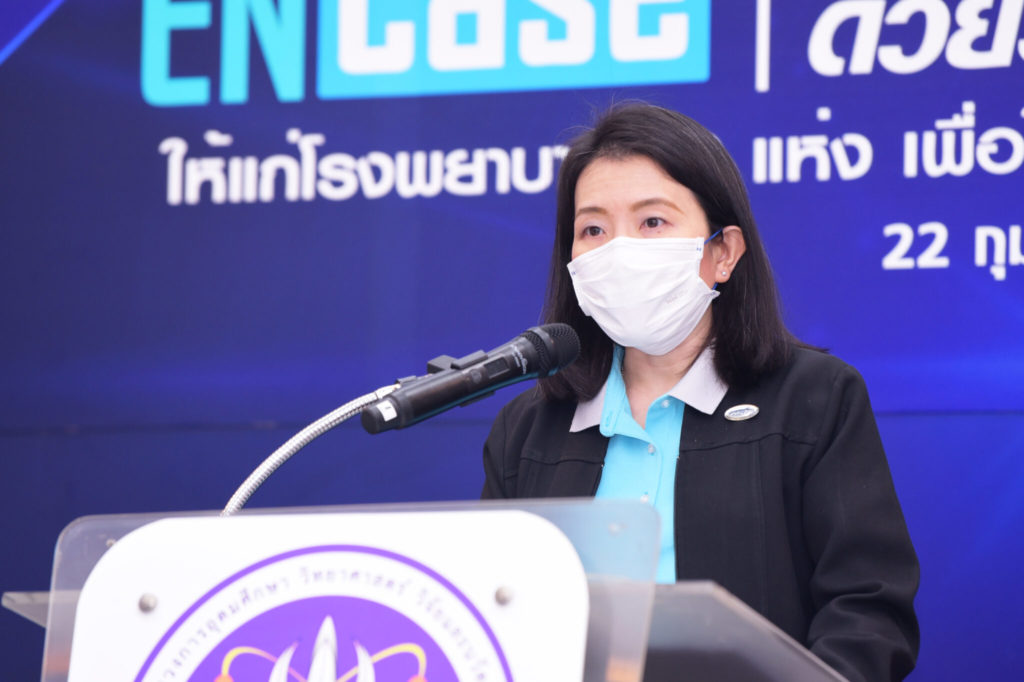
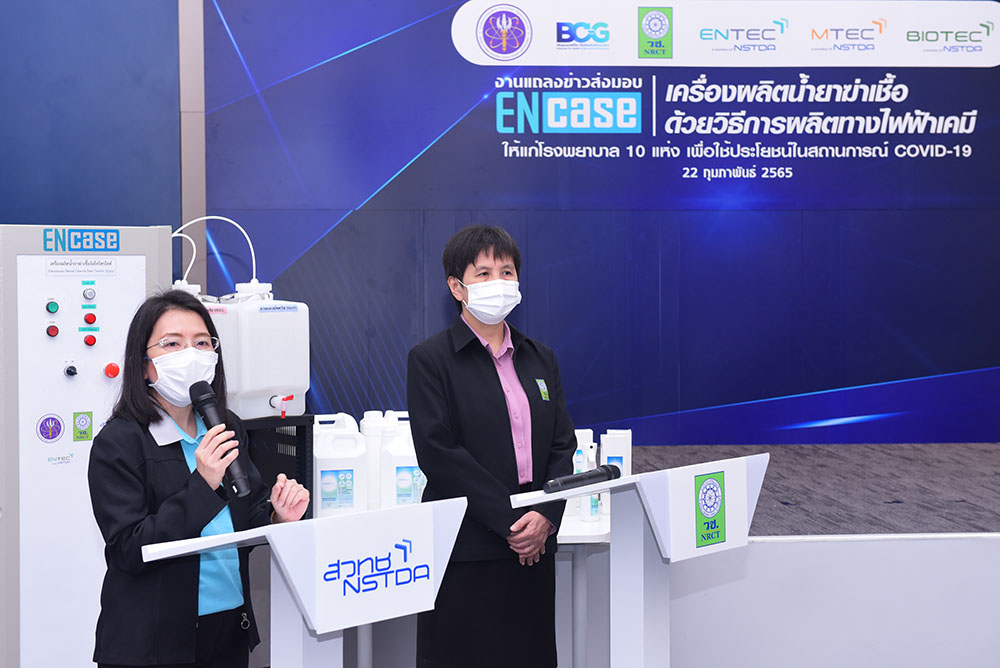
ENcase was developed by a research team led by Dr. Somsak Supasitmongkol, a researcher of the Clean Fuel Technology and Advanced Chemistry Research Team. The ENcase team consists of Dr. Thaneeya Roytrakul, a researcher of the Molecular Biology of Dengue and Flaviviruses Research Team, Dr. Sittiruk Roytrakul, a researcher, and Miss Pattiya Laksanacharoen, a lab assistant of Functional Proteomic Technology Research Team of the National Center For Genetic Engineering and Biotechnology (BIOTEC). The research project title is “The development of a disinfectant production kit that contains chlorine with electrochemical principle for the treatment of infectious waste in public health organizations.” and its funding support is from the National Research Council of Thailand (NRCT).
At present, the research team has installed ENcase in 10 hospitals in 4 provinces, namely
- Yangchumnoi Hospital, Sisaket Province
- Muangchan Hospital, Sisaket Province
- Baan Non Khun Health Promoting Hospital, Sisaket Province
- Yang Chum Yai Health Promoting Hospital, Sisaket Province
- Baan Phak Kha Health Promoting Hospital, Sisaket Province
- Sisaket Hospital, Sisaket Province
- Paknamlangsuan Hospital, Chumphon Province
- Phato Hospital, Chumphon Province
- Phaholponpayuhasena Hospital, Kanchanaburi Province
- Warinchamrab Hospital, Ubonratchathani Province
ENTEC and the research team expect that ENcase, an innovative electrolyte disinfectant generator, will be an efficient innovative solution to help these hospitals to be able to produce disinfectant for in-house usage. ENERclean could be exployed in various tasks to reduce the spread of infectious diseases in the hospitals, especially during the COVID-19 situation and reduce the cost of the hospital itself.
Dr. Wiparat De-ong, Director of the National Research Council of Thailand (NRCT), said that NRCT has actively supported this ENTEC’s research project and ENTEC research team has successfully developed ENcase which is of practical use in the public health organizations. ENERclean can kill pathogens in the treatment of infectious waste, especially during the situation of COVID-19. ENcase will help the work of the medical personnel and staff becomes more safe.
The delivery of ENcase to 10 hospitals in 4 provinces will help these hospitals to reduce the risk of infection and create an effective solid waste management system in the hospitals.
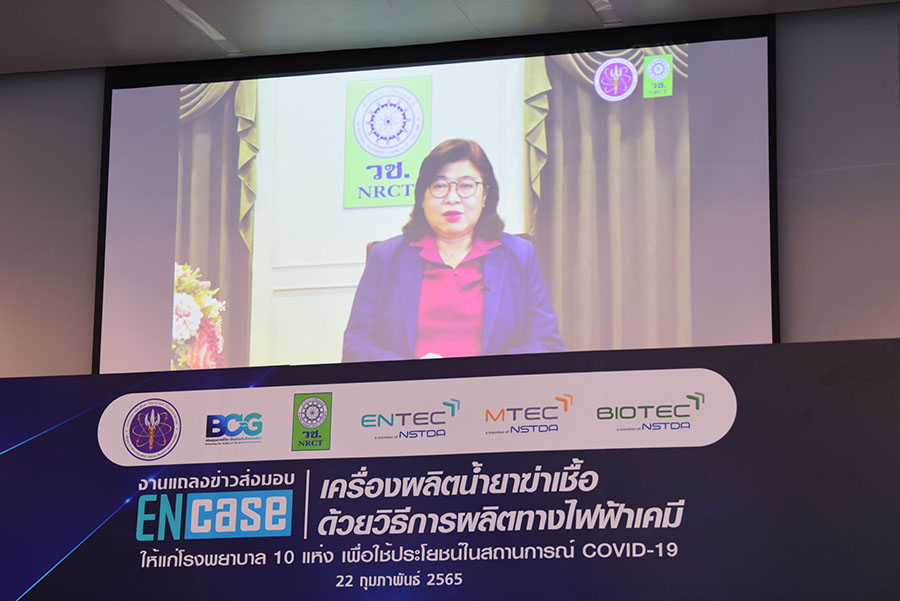
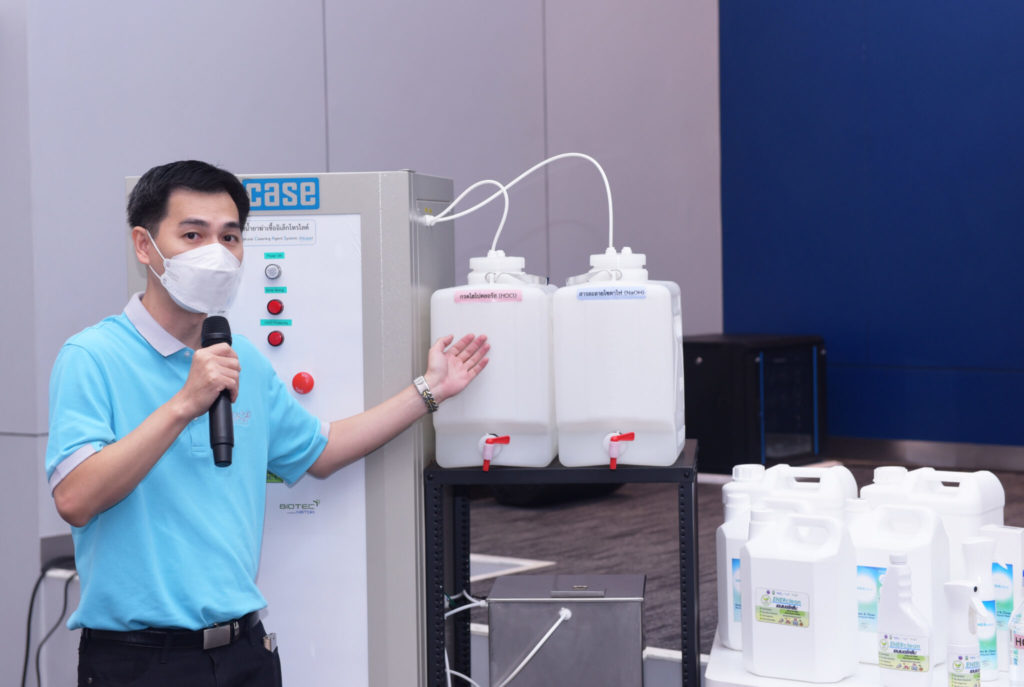
Dr. Somsak Supasitmongkol said that ENcase is designed to produce both acid and alkaline solution from electrochemical reaction with water and sodium chloride as inputs. ENcase has a positively charged cell installed inside to produce an acidic solution and a negatively electric charge, thus creating an alkaline solution. A reverse osmosis (RO) system is also installed inside ENcase to purify the water before an electrochemical reaction with salt or sodium chloride, thus allowing the generator to produce both acidic and alkaline solutions at the same time. Encase can produce up to 30 liters of liquid per hour, consisting of 15 liters of acidic and 15 liters of alkaline. The acid produced is a weak acid with a pH range of 4-6, which is not harmful to people with the antiseptic properties that contain hypochlorous acid, (HOCl) as the main component. It has a chlorine content of more than 400 ppm and the Oxidation-Reduction Potential (ORP) in the range of 900-1200 mV, and the alkaline solution that contains sodium hydroxide, (NaOH) or caustic soda as the main component can be used to clean the surfaces or remove grease.
ENERclean, a product of ENcase, is effective in inhibiting and killing bacteria in the hospitals conforming to disinfection product test standards. It is also effective in inhibiting and disinfecting the new Coronavirus 2019 (SARs-CoV-2) on non-porous environmental surfaces by 99.9% conforming to the ASTM E1053-20. ENERclean, therefore, can be applied in the medical and food industries. The main purpose of ENERclean production is to disinfect infectious waste in the hospitals before the disposal process during the COVID-19 outbreak to prevent and reduce the spread of pathogens and infection. Furthermore, ENERclean can also be used to disinfect and wash hands instead of using alcohol or other harmful disinfectants, as well as disinfect food, such as fruits, vegetables, fish, and seafood. However, its use depends on the concentration of the chlorine inside ENERclean, e.g., mixing ENERclean with water in a proportion of (1:1) or an equivalent of a chlorine concentration of 150-200 ppm is suitable for disinfection replacing the use of alcohol, mixing ENERclean with water in a proportion of (1:10) or an equivalent of a chlorine concentration of 10-50 ppm is suitable for food disinfection, or using ENERclean at the level of 300-500 ppm is suitable for disinfection of infectious waste.
Mr. Nattapon Dechsiabua, Director of Baan Phak Kha Health Promoting Hospital, Sisaket Province, said that during the COVID-19 outbreak, there are a lot of COVID-19 patients in the area and a significant amount of infectious waste, thus this waste has been managed and alcohol use has increased. The hospital, therefore, wants to reduce its costs by participating with ENTEC in this project. Once ENcase has been installed at the hospital, the use of the generator has been demonstrated and trained to the medical personnel. The hospital can produce the disinfectant and apply it to the treatment of patients, especially the COVID-19 patients. This disinfectant ENERclean produced by ENcase helps the hospital to reduce the use of alcohol by using only salts and water as raw materials, which are inexpensive compared to the cost of using alcohol for disinfection.
